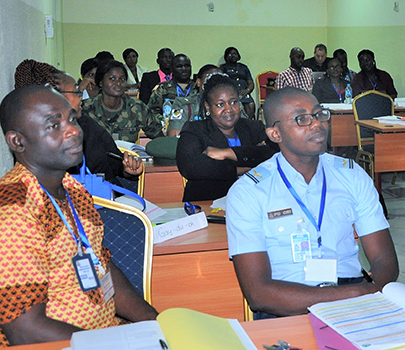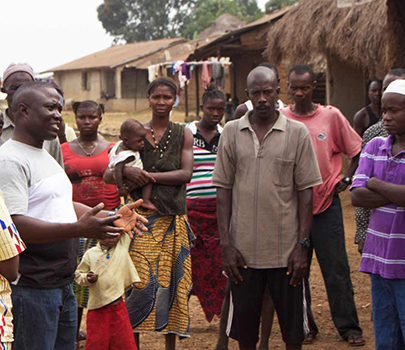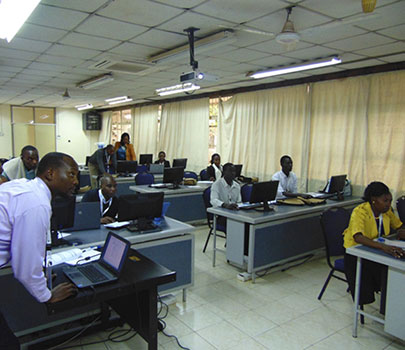



Leveraging a wide variety of methods and expertise, EVIHDAF provides solutions to its clients and stakeholders on approaches to program design, program effectiveness and efficiency, and process of bringing proven interventions to scale.
Our solutions are tailored to answer critical questions like:
By answering these questions, we improve accountability to stakeholders and donors, and ultimately inform program and policy decisions. We focus on quality results and how our clients will use the information to make policy and program decisions.
Our offer includes:
Operations research generates practically-usable information which can enable decision-makers to improve the performance of their programs or to determine which alternative service delivery strategy would yield the best outcomes. EVIHDAF uses mixed-methods approaches to promote evidence-based programming and help program managers by identifying solutions to problems that limit effectiveness, efficiency or quality.
Monitoring performance is critical to delivery of high quality project objectives within scheduled timeframe. It also provides a basis to assess progress and inform when and where adjustment is needed during implementation. EVIHDAF provides performance monitoring systems tailored for small, medium and large scale initiatives with varying volumes of data management needs. We measure the processes and performance of interventions, and provide insightful performance analyses for programming decision-making.
Evaluation answers the often-difficult question of whether and by how much the program achieved its intended outcomes.
EVIHDAF uses flexible, theory-based, mixed-method approaches to ascertain not just whether an intervention works, but how and why it works, and how it could be improved. We use experimental and quasi-experimental designs to measure not only the change that has occurred, but also the extent to which it is attributable to the program intervention.
Economic evaluation supports better allocation of scarce resources by determining if the value of an intervention justifies its cost, and ultimately identifying interventions that are relatively inexpensive, yet have the potential to improve population health and well-being.
EVIHDAF designs and executes cost-effectiveness and cost-benefit analyses.
It is in the interest of most initiatives to ensure that the benefits of an intervention live long after the project ends.
EVIHDAF provides quantitative and qualitative methods to determine the merit, worth and significance of continuing a program, or maintaining, replicating, and exporting its outcomes and impacts, beyond the end of the initial resources.
A sizable proportion of maternal, newborn and child deaths could be prevented by interventions that are available and feasible for implementation in low-income countries. Implementation research examines how to fill the “evidence to program” gap, by using existing knowledge to scale up proven interventions into sustainable programs at scale.
EVIHDAF provides a range of quantitative and qualitative methods to support the uptake and integration of evidence-based interventions into practice, and guide the application of research findings to real-world contexts and settings.